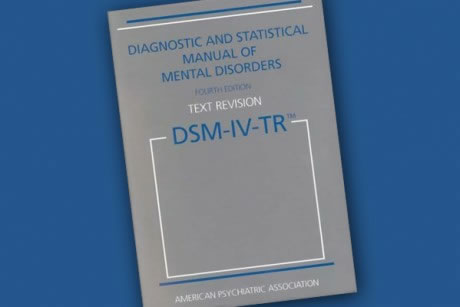
Doctors for the Family’s claims aren’t based on scientific evidence. Flickr/Poes In Boots
The evidence is clear that children who grow up in a family with a mother and a father do better in all parameters than children without.” That’s according to the Doctors for the Family’s submission to the Senate Inquiry into Marriage Equality. And it’s rightly generated a lot of criticism over the past few days.
It’s unfortunate that a group of 150 doctors, which doesn’t represent the academic consensus on the issue, has been given such a high profile. The Conversation’s medical blogger, Michael Vagg, has already critiqued the sources of the group’s so-called “evidence”. But what does the research really show?
We need only look back to 2007 to find a review by the Australian Psychological Society. The academic literature on lesbian, gay, bisexual and transgendered families states that the “research does not support negative assumptions about the experiences or outcomes of children of lesbian mothers.”
This view was foreshadowed by the American Academy of Pediatrics which concluded in 2002 that there was no systematic difference in the psychological well-being of children with same-sex attracted parents. It’s the quality and type of relationship – both between and with parents – that matters most.

Kids with same-sex parents tend to have better relationships with their parents than heterosexual families. nettsu
Kids with same-sex parents tend to have better relationships with their parents than heterosexual families. nettsu
A synthesis of research from numerous studies followed in 2004 and suggested that parent-child relationships were slightly better in same-sex families.
Longitudinal research from the United Kingdom has shown that social acceptance, close friendships and peer relationships were no different for children with lesbian mothers when compared with other families. And population-based studies from the United States have even suggested that these children were more connected at school.
This is just a snapshot of a continuing body of research. Critics highlight the small sample sizes across all these studies and the almost universal focus on lesbian mothers. What’s needed now is a broader approach that accurately reflects the complex issues at play and incorporates all forms of parenting by same-sex attracted people.
That’s what we’re aiming to do with the Australian Study of Child Health in Same-Sex Families. For the first time we’re capturing the complete physical, mental and social well-being of up to 750 children with at least one same-sex attracted parent. We’re currently recruiting families with children aged under 18 where at least one parent identifies as being same-sex attracted. So this includes bisexual and transgender parents.
Our research is not about marriage equality; although the stability that this might bring to same-sex families can only be a good thing. Our study is about optimising the health and well-being of children and aims to provide a strong evidence base from which this can be achieved.

Doctors for the Family's submission to the Senate Inquiry into Marriage Equality isn't based on evidence. nettsu
As public health researchers, we recognise the weight of evidence that demonstrates children with same-sex attracted parents are generally doing very well. But we also acknowledge concerns about the impact that stigma and discrimination could potentially have on these children. In countries where there’s a lot of perceived stigma – most notably, the United States – children face definite challenges coping with homophobic attitudes.
Groups such as Doctors for the Family only serve to propagate such stigma and discrimination. Contrary to their stated objective to “ensure a healthy future for our children,” they’re harming the very people they claim to protect.
As doctors, we’re trained to critically appraise evidence. And it’s our responsibility to present this information, in a balanced manner, to the public. To state that there is clear evidence that children who grow up in a family with a mother and a father do better in all parameters than children without is failing in this duty.
If you’re interested in being part of the Australian Study of Child Health in Same-Sex Families, please email me at admin@achess.org.au or visit our website. The study is part of the Jack Brockhoff Child Health and Wellbeing Program at the McCaughey VicHealth Centre in the Melbourne School of Population Health.
This article was originally published at The Conversation.
Read the original article.
 The Diagnostic and Statistical Manual of Mental Disorders (DSM), long the master reference work in psychiatry, is seriously flawed and needs radical change from its current “field guide” form, according to an essay by two Johns Hopkins psychiatrists published in the May 17 issue of the New England Journal of Medicine.
The Diagnostic and Statistical Manual of Mental Disorders (DSM), long the master reference work in psychiatry, is seriously flawed and needs radical change from its current “field guide” form, according to an essay by two Johns Hopkins psychiatrists published in the May 17 issue of the New England Journal of Medicine.


